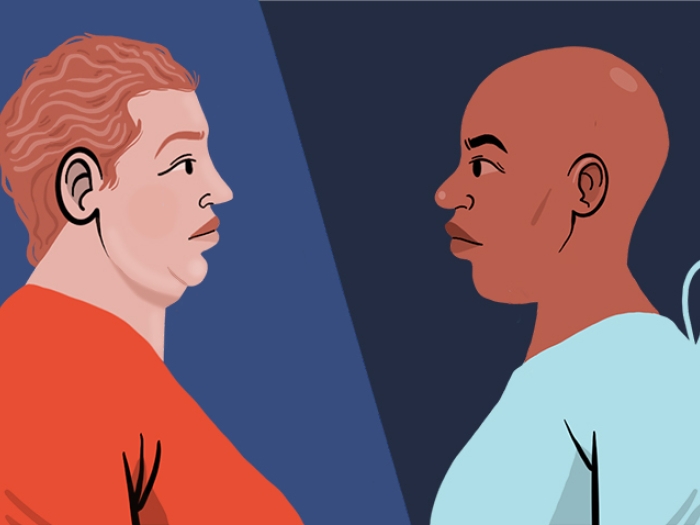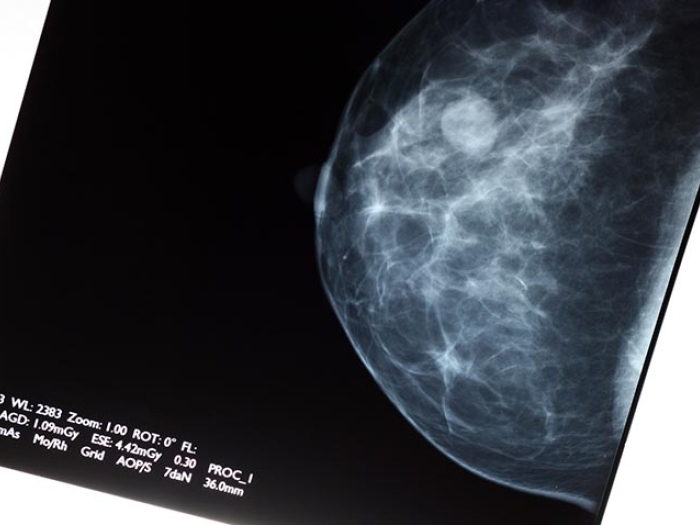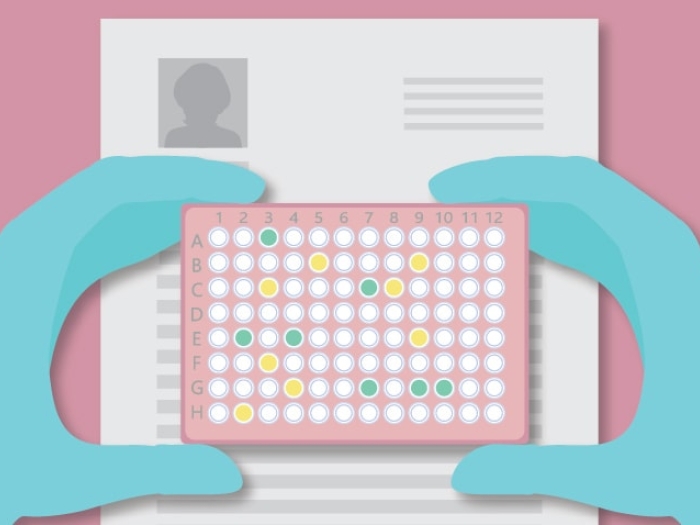Worry about recurrence and radiation more often lead women to weigh double mastectomy.
10:00 AM
Author |

A new study finds that more than half of women with early stage breast cancer consider an aggressive surgery to remove both breasts. The way women generally approach big decisions, combined with their values, affects which breast cancer treatment they think about, the study also found.
MORE FROM THE LAB: Subscribe to our weekly newsletter
Contralateral prophylactic mastectomy — a procedure to remove both breasts when cancer occurs in only one breast — has become increasingly popular in recent years, with more than 20 percent of patients opting for it. For most women, removing the unaffected breast does not improve survival.
To understand the factors driving this increase, researchers at the University of Michigan Rogel Cancer Center asked women how they approach the emotional side of decision-making: if they often regret their decisions, if they take a more rational or intuitive approach and how much they want their doctor to tell them what to do.
"The decision-making process is complicated. We found there are a lot of values that come into play," says lead study author Sarah T. Hawley, Ph.D., MPH, professor of internal medicine at Michigan Medicine.
Researchers surveyed 2,362 women newly diagnosed with early stage breast cancer. Women were asked how strongly they considered contralateral prophylactic mastectomy as a treatment option. They were also asked about their values and decision-making style.
About 54 percent of women said they considered double mastectomy, with a quarter saying they strongly considered it. Results are published in the journal Cancer.
Women who reported worrying about making a bad decision were more likely to consider double mastectomy. Those who considered themselves more logical in their decision-making considered it less often than those who said they go with their gut.
Of the concerns studied, worry about cancer returning and a desire to avoid radiation exposure were most strongly associated with considering contralateral prophylactic mastectomy.
SEE ALSO: When a Doctor Recommends Against the Surgery a Breast Cancer Patient Wants
But a more aggressive surgery does not always address those concerns, the researchers note.
"Fears about radiation are common, so it is very important to make sure women are fully informed before they make the decision to pursue much more aggressive surgery than they need," says study author Reshma Jagsi, M.D., D.Phil., professor and deputy chair of radiation oncology at Michigan Medicine.
"We need to make sure women understand how far technology has advanced to make radiation treatment safe and tolerable. We also need to make sure women understand that even after mastectomy, radiation might be recommended if the cancer has certain features," she adds.
In addition, women who said they wanted to make their own decisions most of the time, rather than rely on a doctor, more strongly considered double mastectomy. The findings suggest that this more aggressive treatment tends to be driven by patient desire, not a physician's recommendation.
"It goes against what the traditional shared decision-making model would suggest, which is when you involve people and inform them fully, most people would be inclined to choose less extensive treatment," Hawley says.
Physicians need to help patients feel comfortable with treatment decisions within their underlying nature and values.Sarah T. Hawley, Ph.D., MPH
Takeaways for physicians
The researchers suggest that physicians and decision aids need to consider patient values during the process. Hawley and colleagues have developed a decision tool that walks patients through an exercise to prioritize their values, mapping those values to potential treatment decisions. They plan to broaden that based on these findings.
SEE ALSO: Study Finds 'Striking' Use of Double Mastectomy
"If physicians have feedback that a patient likes to make decisions a certain way, they can understand the patient's emotional processing and help the patient make a decision that meets her needs physically and emotionally," Hawley says.
This could mean educating patients about misperceptions around risk. Many patients overestimate their risk of cancer returning, and they may not understand the impact of double mastectomy. It could also mean simply acknowledging a patient may feel uncomfortable with some treatment recommendations.
"A lot of these conversations around therapy — including extensive therapy that may not be truly beneficial in terms of survival — may come down to emotional values. Physicians need to help patients feel comfortable with treatment decisions within their underlying nature and values. This includes helping patients understand when less extensive treatment might be the right option. Patients need to feel secure in knowing that choice will give them their best chance at survival," Hawley says.
Learn more about breast cancer and breast cancer treatment:
Breast Cancer at the University of Michigan Rogel Cancer Center
What to do When You're Diagnosed with Breast Cancer
Tips for Selecting an Oncologist and Cancer Treatment Center

Explore a variety of health care news & stories by visiting the Health Lab home page for more articles.

Department of Communication at Michigan Medicine
Want top health & research news weekly? Sign up for Health Lab’s newsletters today!





